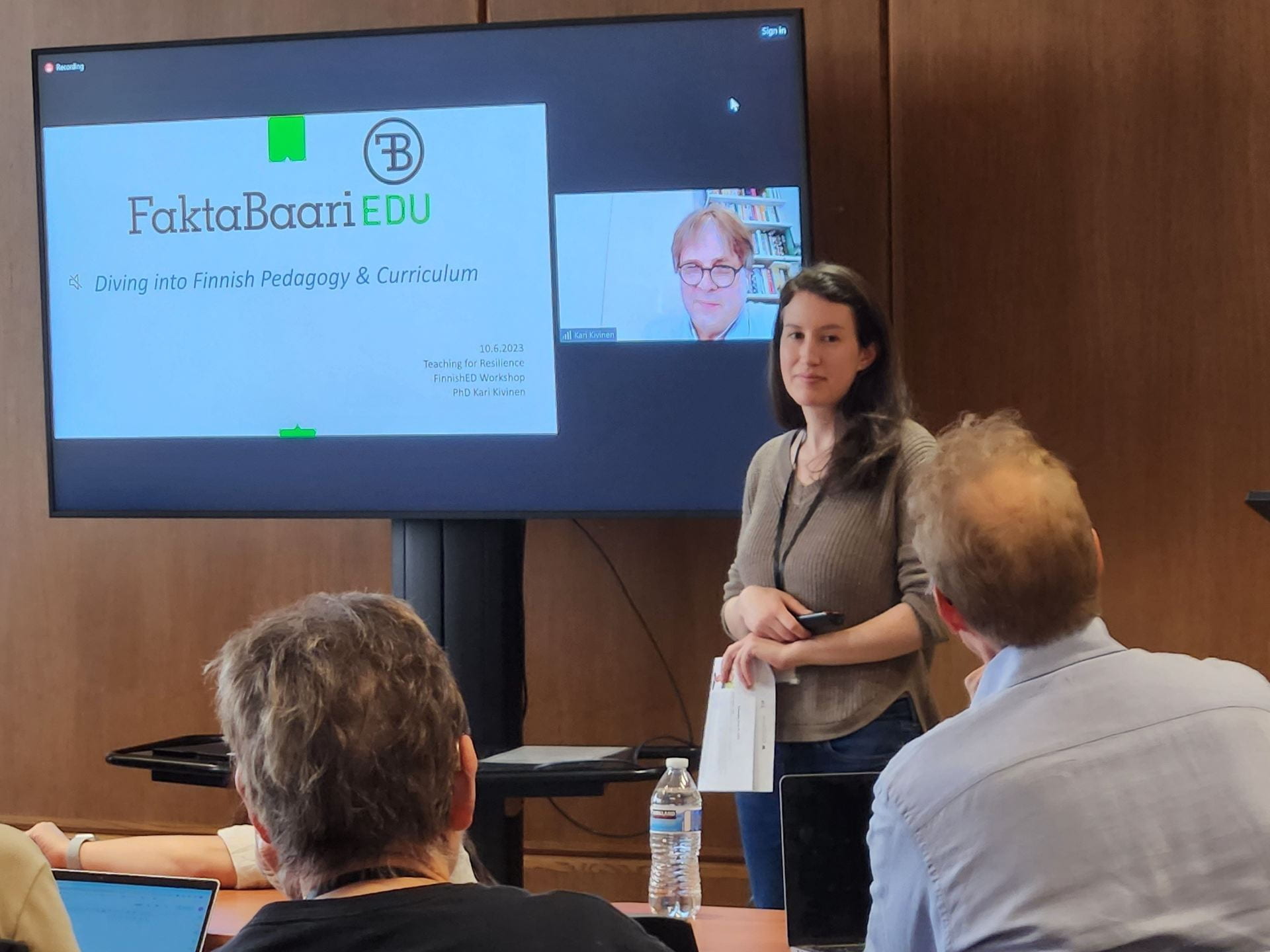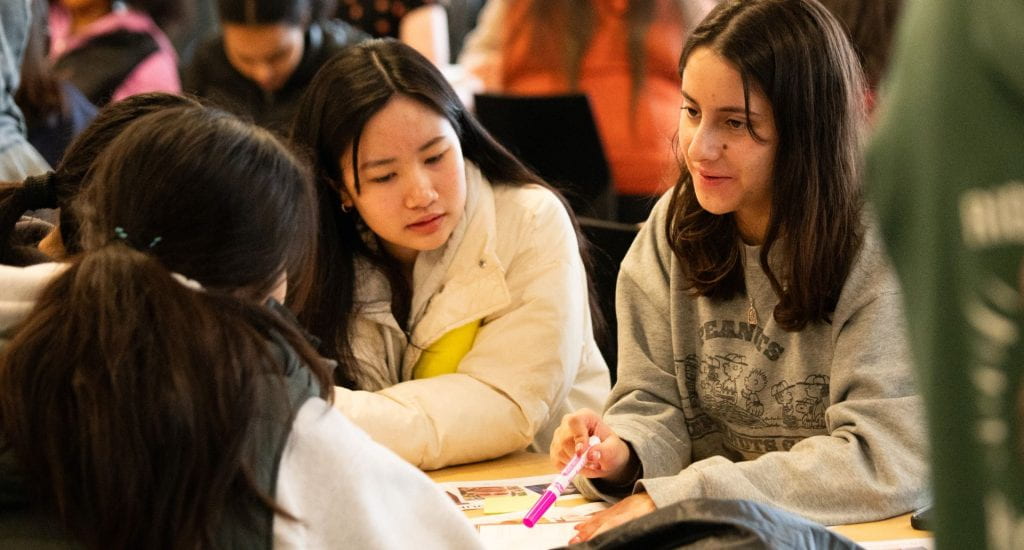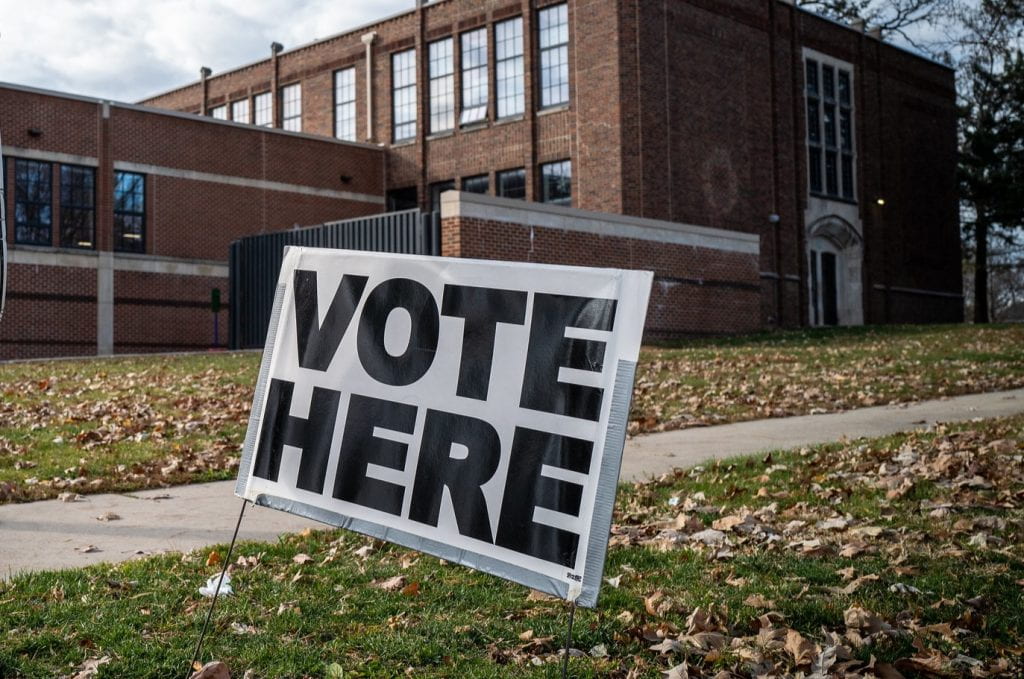The Center for an Informed Public co-hosted approximately 35 teachers, librarians and other educators for a two-day professional development workshop, “Teaching for Resilience: FinnishED,” on June 9–10 at the University of Washington in Seattle, an opportunity to learn about Finland’s highly regarded educational approaches to teaching fundamental skills around digital information literacy and being more resilient to mis- and disinformation.
Workshop presentations, discussions and activities were built around a key question: What can U.S. educators learn from Finland to become more resilient to mis- and disinformation?
The workshop was co-hosted by Teachers for an Informed Public, a group of teachers and librarians inspired by the CIP’s educational work who meet regularly to discuss the development of digital information literacy lessons and resources.
Workshop presenters included two experts from Finland, Mikko Salo, founder of Finnish factchecking and digital literacy organization Faktabaari and a former member of the European Commission; and Kari Kivinen, an education outreach expert of Faktabaari and former secretary-general of the European Schools System. Workshops, dialogues and activities were also designed and facilitated by CIP research scientist Mike Caulfield, CIP assistant director for education and engagement HeeJae Chung, CIP MisinfoDay program coordinator Liz Crouse and CIP co-founder Jevin West, a UW iSchool associate professor and co-author of the book Calling Bullshit: the Art of Skepticism in a Data-Driven World.
Workshop sessions included introductions to Finnish pedagogy and education policy implementations, discussions about lateral reading techniques, the “SIFT” method for factchecking and evaluating online claims (developed by Caulfield), the impacts of generative AI and ChatGPT on information literacy, plus hands-on curriculum mapping activities using the Euorpean Commission’s Digital Competence Framework for Citizens.
Wesley Fryer, a middle school STEM and media literacy educator from Charlotte, North Carolina, attended the FinnishED workshop in Seattle and captured key ideas, lessons and other highlights in a blog post, Mastodon thread and a 6-minute YouTube video.
In a June 9 Mastodon post, Fryer relayed insights from Salo, including how fundamental reading is for the overall development of critical thinking and media literacy skills. There are no “silver bullets” for dealing with the great challenges we face in our information environments, but building capacity to develop reading skills among youth and citizens is very important. Information resilience is doubly important in Finland due to its neighbor, Russia.
“We have a big neighbor and they send cyberattacks which affect our older citizens as well as young people,” Salo observed, noting Finland’s upcoming elections in 2024.
In 2021, Washington state officials signed a Memorandum of Understanding with the government of Finland to support stronger economic ties. Last year, the CIP received funding in the 2022 Washington state supplemental budget to build deeper ties with researchers, educators and librarians in Finland working in the areas of misinformation, disinformation, and media literacy. This work falls within the fifth area of the state’s MOU — new technologies changing ways how societies interact. Finland has faced disinformation campaigns throughout its history and with its movement into NATO, these issues will be even more pertinent in the years to come. Read more about this work in a March 2023 Q&A with CIP co-founder Jevin West, “What we can learn from Finland.”
FinnishED Workshop Resources
- Digital Information Literacy Guide (Faktabaari)
Digital information literacy is a modern civic skill that underpins participation in democratic decision-making. Finland is renowned for its high literacy rate, and the teaching of multiple literacies has been integrated into current curricula from early childhood education onwards.
However, on digital platforms we all are confronted with a bewildering flood of information that they may not be able to filter out with the skills they have acquired in the school community and at home: claims about products by influencers, search results tailored by commercial algorithms, cleverly scripted propaganda and authorisations to track online behaviour or physical movement in urban space hidden behind countless ‘yes’ buttons. It is therefore important to strengthen the digital information literacy of all the web users, especially young people, in order to identify how we are being influenced online.
This guide is a collection of information and examples on how to enhance digital information literacy. Download the Digital Information Literacy Guide (PDF)
- Guidelines for Teachers and Educators on Tackling Disinformation and Promoting Digital Literacy Through Education and Training (European Commission)
- Digital Information Literacy Guide (EDMO Nordis Project)
- Science in a Age of Misinformation (Stanford University)
- Digital Competence Framework for Citizens (European Commission)
- Description of Digital Competence: A Finnish Framework (Finnish National Agency for Education)
- The Finnish Framework for Digital Competence | Digital Competence and Media Literacy sections.




